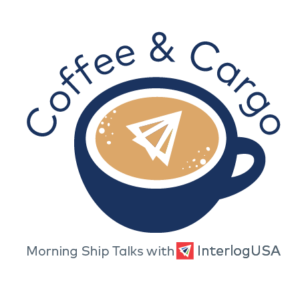Competitive Edge
November 9th, 2022
SEVERE WEATHER – South Florida ports close amid hurricane-to-be Tropical Storm Nicole
A hurricane warning has been issued along the central part of Florida’s east coast today as the storm system, categorized right now as Tropical Storm Nicole, is forecasted to make landfall – as a Category 1 hurricane – late tonight or early Thursday morning.
South Florida Container Terminal (SFCT): Closed today, tomorrow, and (possibly) on Friday
Port of Miami (POMTOC): Closed today, tomorrow, and (possibly) on Friday
Florida International Terminal (FIT): Closed today and on Friday. A tomorrow closure has not been confirmed, but it’s likely possible.
Port Everglades (PEV): Closed today and on Friday. A tomorrow closure has not been confirmed, but it’s likely possible.
UPDATE: U.S./Canada Ports – Number of Cargo Vessels at Anchor
• Vancouver: 36 Vessels at Anchor (0)
• Houston: 22 Vessels at Anchor (0)
• San Francisco/Oakland: 7 Vessels at Anchor (-4)
• Mobile: 7 Vessels at Anchor (-2)
• New York/Newark: 5 Vessels at Anchor (-1)
• Los Angeles/Long Beach: 4 Vessels at Anchor (-3)
Note: Count taken on November 8, 2022. This count does not include vessels moored and being unloaded at port docks. Colored numbers in parentheses represents the change from last week over. Data is courtesy of MarineTraffic’s live vessel traffic map.
Have another U.S. or Canadian port you’d like us to track weekly? Let us know!
Takeaways
• U.S. West Coast: Much in tune with Fatboy Slim’s album You’ve Come A Long Way, Baby, the WC has enjoyed relatively minimal congestion—a far cry from what it looked like just a year ago. The coast’s premier gateways of Los Angeles and Long Beach have kept under single digits for the last few weeks. Other WC hubs like Seattle, San Francisco, and Oakland are in the same ballpark with their respective vessel counts. However, some shippers aren’t seeing this glitter as gold. Despite being the least congested of America’s coasts, struggling rail service and stalling labor contract negotiations have contributed to weary shippers averting the WC.
• U.S. Gulf Coast: Houston’s vessel count remains unchanged week-over-week. With a dwell fee now in play for shippers, the Gulf’s main gateway may see less marine traffic coming its way.
• U.S. East Coast: Solely off the last two months, New York is the mecca of trade activity for the U.S. Typically, the country’s third busiest (behind Los Angeles and Long Beach), the EC port has jumped ahead of its WC counterparts as shippers remain weary of WC routings. The vessel count remains relatively minimal at New York, but its operations have struggled, mainly with dwelling containers.
• Canada: Vancouver’s vessel count remains unchanged week-over-week. From a glass half-full perspective, this is an improvement to its backlog as no additional ships were added to the sizeable queue. Berthing delays remain a hindrance.
IMPORT: Asia to North America (TPEB)
Recent Developments:
• Contract negotiations between the International Longshore and Warehouse Union (ILWU) and Pacific Maritime Association (PMA) remain active. The existing labor contract between the two parties expired July 1.
• Los Angeles, Long Beach, and Houston remain impacted on the rail side of things. Dwell times are around 15 to 20 days. However, glowing improvements to congestion at some inland hubs are promising signs going forward.
• Freight railroad BNSF has cleared 80 percent of stacked ocean containers at its Dallas terminal. Please refer to our article below for more details.
• Other terminals in Chicago, Memphis, and Kansas City continue to struggle with rail woes, largely thanks to marine chassis deficits.
Rates: The rate plunge has settled down. While it could be a temporary plateau before falling again, these current spot rates could also reflect the post-pandemic standard. The next several weeks will be telling. In addition to fallen rates settling, carriers have announced GRIs, effective November 15, affecting all U.S. and Canadian destinations.
Space: Space is open.
Capacity: Carriers have reduced their capacities to balance the market amid low demand. Capacity remains generally open for transpacific trade.
Equipment: Chassis availability is in a crunch in pockets, but with production amping up and lower import volumes coming through, there is hope of relief. Congested rail ramps remain a frequent fixture.
TIPS:
• Book at least two weeks prior to the ready date.
• For cargo ready now, take advantage of open space and softened rates on the spot market.
• Blank sailings are in play which may affect schedule integrity.
IMPORT: Europe to North America (TAWB)
Recent Developments:
• Northern European hubs, such as Rotterdam, Antwerp, and Hamburg, remain congested. Antwerp will be impacted by strike action today through tomorrow morning, 6 am (CET).
• Labor-related tensions remain gripping Great Britain’s ports as dockworker unions seek a new pay deal that will match with inflation rates. Workers at both ports are engaging in recurring walkouts over the last couple of months. No deal or tentative agreement have been reached.
Please register for our live webinar on Wednesday, November 16 for a closer look at the U.K.’s current labor tensions. We will be joined by our British partners to discuss the impacts in greater detail.
Rates: Steady decreases to rates over the past few weeks have stabilized. However, additional capacity to the transatlantic trade should usher rates to fall over the next several weeks.
Space: Space to both U.S. coasts have benefited from added capacity.
Capacity: Capacity is increasing as additional vessels enter USEC loops.
Equipment: Equipment availability at European seaports is still in a crunch. Inland terminals in Europe are also still reporting equipment shortages. On the U.S. side, chassis availability has improved.
TIPS:
• Book five or more weeks prior to ready date.
• Stay up to date with your forwarder and carrier with advisories on added capacities and declining rates for the trade lane.
• Strongly consider premium services for no-roll options and improved reliability of cargo.
EXPORT: North America to Asia
Recent Developments:
• Congestion remains contributing to operational challenges at Savannah.
• Schedule reliability, or lack thereof, remains an anxiety for exporters. In particular, Oakland saw its volumes dwindle in September as a result.
Rates: So far, no GRIs announced for November.
Capacity: Capacity remains stable.
Equipment: Inland ports, notably Kansas City and Memphis, are reporting container and chassis deficits (the latter improving). Standard equipment at ports remains available unless advised otherwise.
TIPS:
• Book four to five weeks prior to the time of departure to secure necessary equipment and vessel space.
DOMESTIC TRUCKING:
Could the industry be changing to LTL dimensional pricing programs soon?
• This method of pricing would provide straightforward quotes based on a shipment’s weight, dimensions, how much space it takes up on a trailer, and origin and destination zip codes provided from the shipper.
• Then, once the shipment is received, technology would be used to verify the information.
• This method would provide a better way to build fair and accurate rates. While not having to rely on the “classification formula” – that has been the standard of LTL pricing for decades.
InterlogUSA Proudly Presents... Our New Podcast!

Offering insights into breaking news, market trends, our company’s history, and more.
“FreightFM” features short-form video interviews with InterlogUSA’s industry experts.
Did You Know: U.S. Imports Have Seen Some Stabilization for the Month of October
U.S. imports in September were rather bleak but October imports are up 0.8 percent month-on-month but remain down 13 percent year-on-year – yet still up 7.2 percent versus October in 2019.
The U.S. ports have handled 2,220,331 twenty-foot equivalent units (TEUS) of imports last month.
Savannah, Houston, Charleston, Oakland, and Seattle and Tacoma all saw month-on-month gains. While New York/New Jersey fell 26,972 TEUS in October compared to September.
Source: FreightWaves
Freight News
BNSF Railway has cleared over 80 percent of the containers stacked at its Dallas-area terminal
As imports to the Ports of Los Angeles and Long Beach have lowered, BNSF Railway has cleared over 80 percent of the ocean containers that have been stacked at its Dallas-area terminal. BNSF also is hopeful that in a few weeks, normal operating conditions will resume – after two months of congestion at its terminal reached dire levels.
As of last Thursday, BNSF had round 700 containers still left in stacks at the Dallas-area terminal, which is down drastically from 4,000 back in early September.
Just last month BNSF added over 1,000 new parking slots for containers at its Dallas-area terminal, creating additional flexibility to handle import surges in the future, the Journal of Commerce reports. This brings their total parking slots able to handle freight, to 8,300.
However, challenges for BNSF for international loads in Chicago still are persistent, amid a lack of marine chassis. In October, BNSF Railway had the longest truck turn times of the year at its Logistics Park Chicago (LPC) terminal. Specifically, those turn times averaged 82 minutes last month, compared to last October where they were at 49 minutes.
Chassis supply in Chicago has been a challenge. Truckers are taking empty and export containers to a crane to then separate the box and chassis, so they can reuse the chassis for an import load. However, BNSF wants truckers to drop off outbound loads in a parking spot. Drivers are concerned they won’t find another chassis, so they are unwilling to do that request, as it would mean they would be surrendering the chassis.
The Port of Liverpool and the dockworkers’ union
have reached a deal
A fourth strike was set to begin on November 14th and last until the 21st if a deal was not reached. However, a deal has been reached – pending a vote from the union members – averting more strikes, at least for the moment.
Specific details of the proposed offer have not been disclosed as of yet.
On Tuesday, port operator Peel Ports stated that they have reached an agreement with dockworkers.
This comes after a series of strikes that have been occurring since August at the UK’s key west coast hub, which has caused disruption to container flows at the Port of Liverpool. While dwell times were still decent and not posing a threat to the UK supply chain, vessel arrivals at the Port have decreased significantly due to the strikes that continued to occur.
Officials with Peel Ports and Unite the Union have confirmed that the upcoming strike that was planned will be postponed.
Blog of the Week

Winter Fuel Outlook: U.S. Exporting a Record Amount of Crude and Fuel, as the USEC Sees Shortages
Sign Up for Next Week's Webinar

Don't forget to sign up for our webinar next Wednesday, November 16th at 10am.
We will be joined by our UK partners, EORI (UK) LIMITED.
We will be discussing a variety of topics including the UK and USA tradelane, updates on labor strikes, port congestion in the UK, manufacturing/consumer behavior & attitude, and much more!
If you have never seen our Coffee and Cargo webinar, click the "Watch" button below to view our most recent webinar!
Interlog  Insights
Insights
Sign up for our brand new Interlog Insights newsletter where we send out weekly predictions from our experts regarding the freight industry!
This is a good way to stay up to date on what is happening in the freight world and also get a peek into what we expect may be to come!
Sign up for our
industry answers
Our team works to provide valuable, unique, and relevant content to assist you in finding solutions. Sign up now.